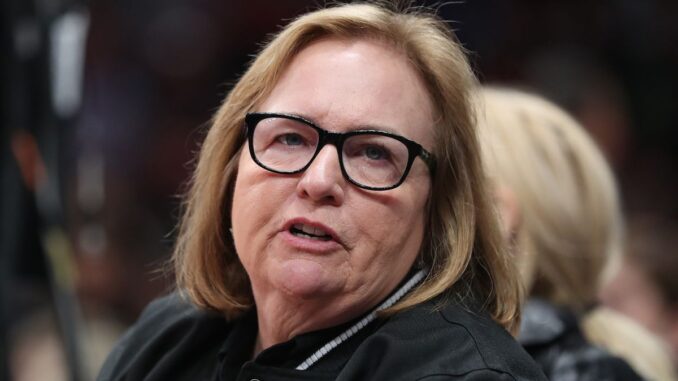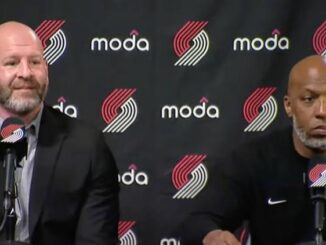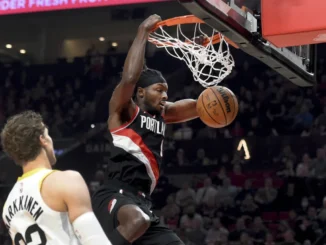
For the past 37 years, the Portland Trail Blazers have been in the hands of the Allen family.
By this time next year, for better or for worse, new ownership will hold the team.
The Paul Allen estate announced Tuesday morning that they were officially beginning the sale process of the team, as mandated in his will when he passed away in 2018 from non-Hodgkin lymphoma. Allen’s ownership saw the team reach the NBA finals in 1990, move into the then-Rose Garden Arena in 1995, and make the playoffs every season for the first 15 years he owned the team.
However, there were lows, such as the infamous “Jail Blazers era” of the early 2000s, and front office dysfunction that persisted for decades. In the last 25 years, the team has had a single conference championship appearance.
The Allens have stayed true to Portland through the highs and the lows. Through the teams’ trials and travails through the highs and lows, drama about the arena, drama about the on-court personnel, and drama around the front office, they’ve kept the team here.
Other fan bases could be so lucky.
As the team’s fortunes have trended downward in recent years, with the trade of Damian Lillard and no playoff appearances in the last four years, the cry among fans has increased for the Allen estate to sell the team. Now those voices are getting their wish.
However, Blazer fans should be careful what they wish for. New ownership doesn’t mean success – ask the Phoenix Suns – and things could always be worse.
Local legend and Nike billionaire Phil Knight has already declared he’s not interested in buying the team. That cuts down the list of local ownership prospects substantially. There are always plenty of wealthy people wanting to buy into professional sports. It’s one of the safest investments a billionaire can make, with taxpayer-supported guaranteed returns. However, with Knight out of the running, it’s unlikely that a buyer comes with significant local ties. Perhaps a former Blazer is added to the ownership group as a frontman, but the real money is probably coming from somewhere else. While the prospect of the team leaving Portland is fairly low, underestimating those odds or saying it has no chance of happening is an exercise in wishful thinking. The team’s current lease in the Moda Center runs through just 2030. While the arena will be getting some significant upgrades in the coming years, it is still a 30-year-old building.
To be clear, NBA Commissioner Adam Silver has been adamant about keeping teams in their current cities. No team has had a significant geographic move since 2008 when the Seattle Supersonics were moved to Oklahoma City. It’s doubtful Silver would want to burn the entire Northwest market after having the Sonics move and the Vancouver Grizzlies going to Memphis in 2001. When a Seattle-based group attempted to buy and move the Sacramento Kings to Seattle, Silver nixed the plan and kept them in Sacramento. Since then, the farthest teams have moved across a river (New Jersey Nets to Brooklyn) and a bay (Golden State Warriors from Oakland to San Francisco).
As the Trail Blazers begin their sales process, the NBA will finally get the ball rolling on potential expansion to 32 teams. The two leading expansion contenders for some time have been Seattle and Las Vegas. Still, other cities such as Louisville, Kansas City, Vancouver, and Mexico City could also be in the mix.
Suppose two things from a potential expansion process are good news for the Trail Blazers. In that case, teams in Seattle and Las Vegas would take those cities off the table as relocation options or options to dangle in front of Portland as extortion options to either go even bigger on Moda Center renovations or build a new arena. If the Trail Blazers sale gets done before expansion is announced, it could also give the new owners a “rebate” of sorts through the payment of expansion fees for the new teams. This could serve as motivation to get a sale, which is expected to last 9-12 months, done sooner.
No matter how long the sale takes, or who ultimately buys the team, Trail Blazers fans should hope that it is a group as locally involved and invested as the Allens. Their stewardship has been far from perfect, but in a new world of private equity billionaire owners wringing every penny they can from teams and fans, they were part of a breed of sports owners we may never see again.




